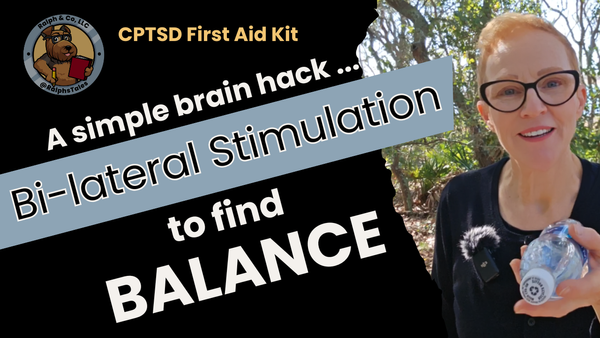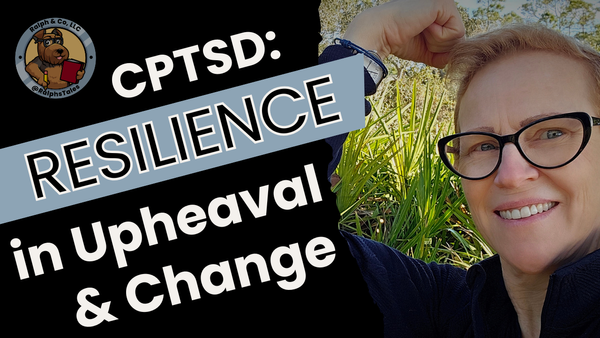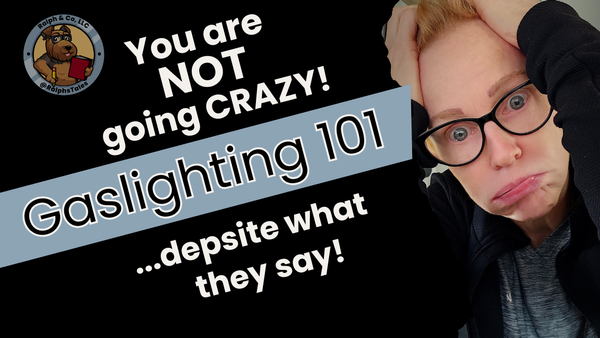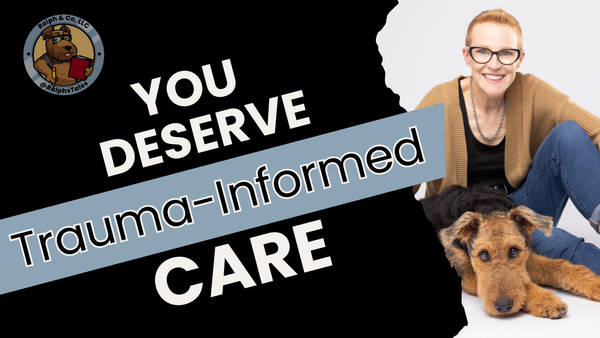The Magic of PTSD Service Dogs
Service dogs are lifelines for people with cPTSD and PTSD. Polyvagal Theory helps us understand why these amazing animals are so effective.
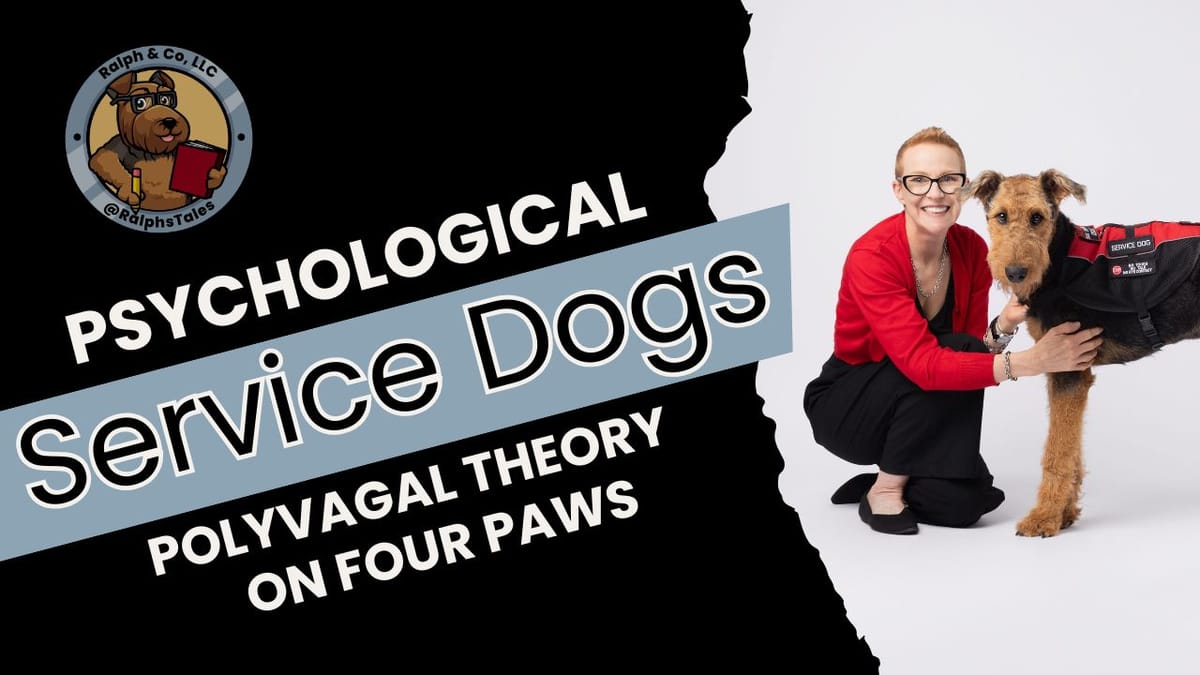
Polyvagal Theory on Four Paws
Polyvagal Theory, created by Dr. Stephen Porges, helps us understand how our nervous system controls our emotions, how we connect with others, and how we respond to stress. This theory explains how psychological service dogs help people with complex Post-Traumatic Stress (cPTSD) and Post-Traumatic Stress (PTSD).
Three Parts of Polyvagal Theory
Three States of the Nervous System
Polyvagal Theory explains that our nervous system has three main states, like the gears in a car:
-
Safe and Social (Ventral Vagal State):
This is like being in drive mode, where we feel safe, calm, and ready to connect with others. -
Fight or Flight (Sympathetic Nervous System):
This is like hitting the gas pedal when we see danger, getting our body ready to either fight or run away. -
Shutdown or Freeze (Dorsal Vagal State):
This is like pulling the emergency brake when we can't escape, causing us to freeze or shut down.
Detecting Safety and Danger (Neuroception)
Dr. Porges introduces the concept of neuroception, a built-in radar system that constantly checks if we are safe or in danger. This radar is often highly sensitive in individuals with PTSD or cPTSD due to past traumas.
The Importance of Social Support
Polyvagal Theory emphasizes that social connections help us feel safe and calm. Positive social interactions can keep us in the Safe and Social state, while isolation or lack of support can make it harder to manage stress. It's like having a co-pilot to navigate tough situations.
Connecting Polyvagal Theory and the Role of Service Dogs
Service dogs act as living, breathing tools to manage and regulate the nervous system states described in Polyvagal Theory. By providing constant support and companionship, they help their handlers feel safer, more grounded, and better able to connect with others. Service dogs encourage shifts into the ventral vagal state, promoting feelings of safety and social engagement, while also managing fight, flight, and shutdown responses.
How Service Dogs Assist Individuals with cPTSD and PTSD
Helping to Stay Calm
-
Staying in the Present Moment:
Service dogs help their handlers stay grounded, like an anchor keeping a boat steady. For example, a dog might push their head into their handler’s palm for grounding touch or give a subtle woof to interrupt moments of hyperfixation. -
Deep Pressure Therapy (DPT):
When a service dog applies pressure by placing their body weight on their handler’s lap, it provides comforting, weighted pressure similar to a hug. This helps the handler relax and regulate out of fight or flight mode.
Reducing Anxiety and Hypervigilance
-
Providing a Sense of Safety:
Service dogs act like 24/7 security guards. Their alertness allows their handlers to feel protected and access states of relaxation. -
Interrupting Anxiety Episodes:
Service dogs notice when their handler is anxious and interrupt escalating behaviors, offering a distraction similar to a friend redirecting a worried thought.
Encouraging Social Interaction
-
Helping with Social Interactions:
Service dogs make social situations more approachable, acting as friendly guides for interactions with others. -
Providing Unconditional Support:
With their constant, non-judgmental support, service dogs help rebuild trust and connections with others.
Preventing Shutdown Responses
- Alerting to Dissociation or Shutdown:
Service dogs can sense when their handler begins to dissociate or shut down, providing nudges or even a sloppy lick to bring them back to the present moment.
Improving Emotional Regulation
-
Providing Routine and Structure:
Caring for a service dog introduces a daily routine, including exercise and outdoor time, which helps the handler stay organized and calm. -
Offering Emotional Support:
The bond between a service dog and their handler is like having a close friend who always understands, helping stabilize mood and foster feelings of safety.
Conclusion
Service dogs are lifelines for people with cPTSD and PTSD. They keep the nervous system calm, reduce anxiety, encourage social interaction, prevent shutdowns, and improve emotional regulation. Polyvagal Theory explains why these incredible animals are so effective: they help keep their handlers in a safe and social state, promoting healing and emotional well-being.
Come Join Us
Surround yourself with a supportive community to gain encouragement and strength on your healing journey.
- Subscribe to our blog for insights, practical tips, and deep dives into trauma-informed topics delivered directly to your inbox.
- Join us on YouTube @RalphsTales, where we discuss these important topics in a caring community while Ralph romps around spreading serotonin-boosting puppy energy!


